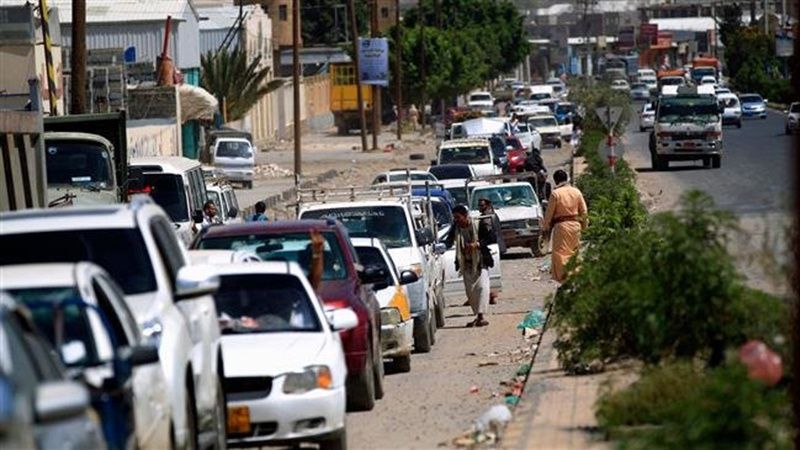
By al-Ahed Correspondent
A senior health official at the Saudi-German Hospital warned on Thursday of grave consequences due to fuel crisis at the complex located in the blockaded capital city Sana'a.
"If we are not able to obtain diesel within a week [to run generators], we will be forced to shut down the hospital," the Managing Director of the Saudi-German Hospital Abdul-Aziz al-Da'ai told al-Ahed.
Al-Da'ai pointed out that his hospital consumes about 4,000 liters of diesel per day, making it the first private hospital using this quantity.
"The lack of diesel is causing a major humanitarian disaster. Our Intensive Care Unit, Operations Room, and almost everything in the hospital depends on diesel," al-Da'ai added.
Earlier on Wednesday, Yemen’s Oil Company sounded the alarm and warned the Saudi-led coalition of exhausting all the quantity of the oil derivatives as a result of the continued detention of the oil tankers.
The company's station number 11 in northern Sana’a, close to the country’s International Airport Road, is less than 100 meters away from the hospital. The hospital guards struggle to prevent cars queuing for fuel in the nearby petrol station from blocking its main gate.
In the queue, all kind of cars can be seen. Other car owners, carrying weapons, don't abide by the queue trying to overtake other cars. But soldiers attempt to prevent them.
Jameel al-Haimi, a father of five and lives in a rented house, however, said he is not bothered by the crowd, although he has been waiting in the queue since yesterday.
"Honestly, I have been in the queue since yesterday afternoon. I slept here and you can see my blanket," al-Haimi told al-Ahed, pointing out that his taxi is the only source of livelihood for his family and an ill grandmother.
Martin Griffiths, the UN special envoy for Yemen during his briefing to the Security Council two days earlier, said the economic situation in Yemen remains extremely fragile. "Commercial ships face difficulties accessing Hodeida, and fuel prices are on the rise."
"The aggression, Abd-Rabbu [Mansour] Hadi who brought the aggression, his gangs and his mercenaries bear the full responsibility for this crisis," al-Haimi noted.
Meanwhile, Yahya Ghuthaim, the manager of the nearby oil company Station 11, told al-Ahed that many of his friends, soldiers, and armed men, try to persuade him of their special circumstances and allow them to get fuel without waiting in the queue.
"As you see, this is a humanitarian disaster. People from all walks of life are queuing; doctors, medics, staff, workers, farmers, even my friends who try to convince me of giving a waiver to get fuel with no queue. This is a disaster, and the street, you see, reflects this," Ghuthaim explained.
"The [Saudi-led] coalition bear the responsibility for this," Ghuthaim said. "Is there any other [party]?" he wondered.
Source: Al-Ahed Website, Edited by Website Team